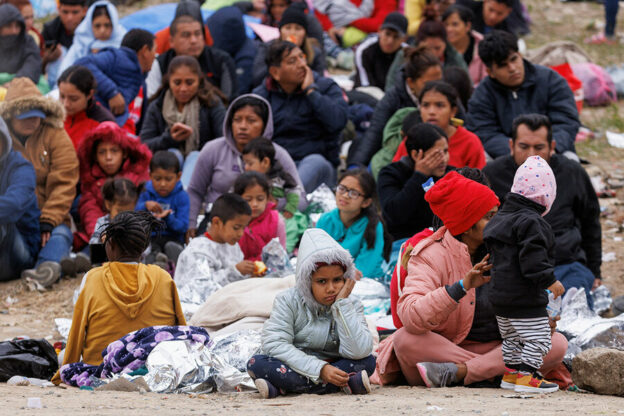Both remarkable and timely is a digression by the Sefer HaChinuch on a mitzvah in the parshah. The mitzvah, #431, is ahavas hager, the commandment to love a convert (Devarim 10:19). In addition to the mitzvah to love every fellow Jew, there is an additional one to love someone who was not born into the people but chose to join it.
After providing details of the mitzvah, the Chinuch includes the Talmudic admonition (Bava Metzia 58b) to not remind a convert of his pre-Jewish past. “… in order to not cause him pain in any way.” He adds that anyone who is lax about helping a convert or protecting his property, or is insufficiently respectful of him or her, violates this mitzvas aseh.
And then he writes: “We are to learn from this precious mitzvah to have mercy on any person who finds himself in a foreign place” and “not ignore him when we find him alone and far from those who can help him.
“And with these sentiments, we will merit to be treated with mercy by Hashem… the pasuk hints to this idea when it adds ‘because you were strangers in the land of Egypt,’ reminding us that we were once burned with the deep pain felt by any person finding himself among foreign people in a foreign land… And Hashem in his mercy took us out of there. Our own mercy should likewise be felt for any person in a similar situation.”
The Chinuch’s expansion of the mitzvah’s underlying idea, even though ahavas hager applies only to a convert, is striking and most pertinent today.
A bandwagon from whose sides all too many happily hang is the anti-immigrant one. To be sure, immigration is something that rightly has rules, and borders cannot be totally open to all. But the Jewish attitude toward those foreign-born people who (often having risked their lives) are among us – legally or otherwise – is to be one of mercy and concern.
The pasuk’s reminder of our ancestors’ sojourn in Egypt is pithy here too. Many, if not most, American Jews are no more than a generation or two removed from their own immigrant forebears. Our parents or grandparents found themselves on these shores, far from their birthplaces, strangers in a strange land. We can imagine their pain and fear. And should recognize the similar pain and fears of others, including newer newcomers to America.
© 2023 Rabbi Avi Shafran
